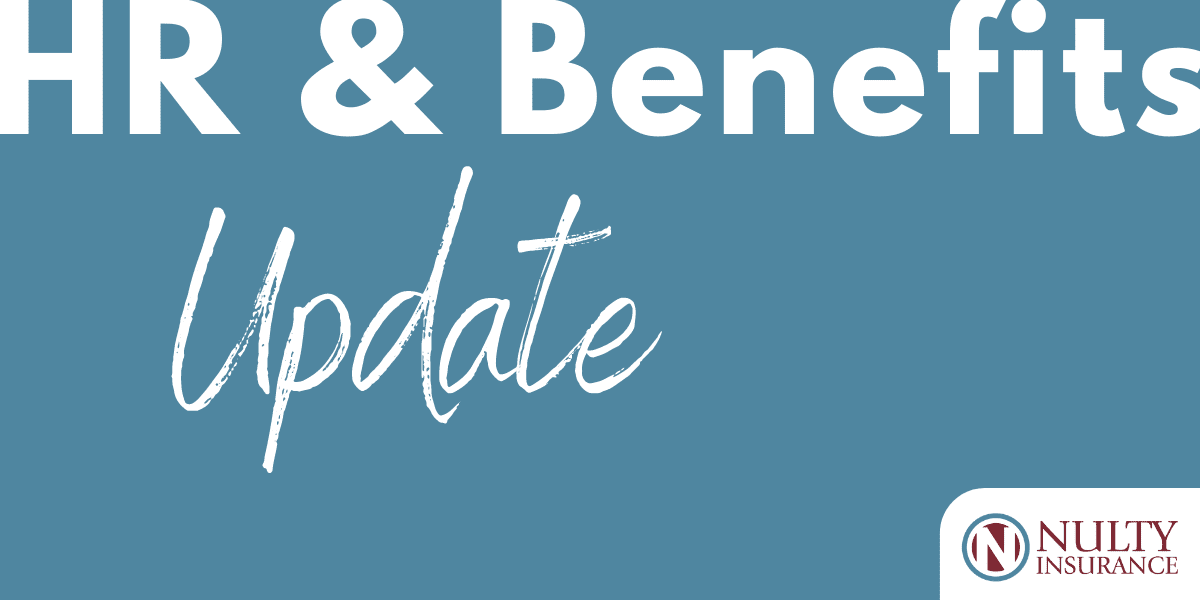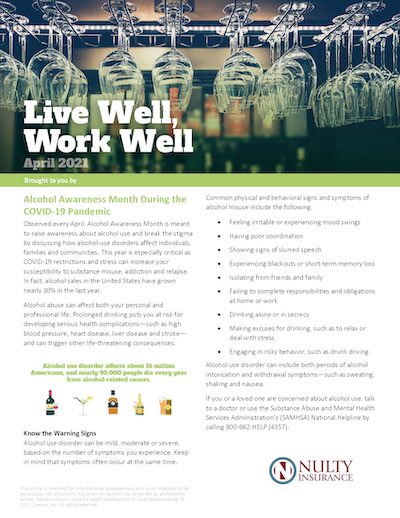
🗓️ July 2021 Updates
Keeping HR leaders up to date with important compliance updates and human resource articles.
MIOSHA Lifts the COVID-19 Emergency Rules for Non-healthcare Settings
On June 22, 2021, MIOSHA filed new COVID-19 emergency rules to align with the Federal OSHA’s Emergency Temporary Standards. These new emergency rules supersede all of the emergency rules that were filed on May 24, 2021, and adopt the Federal OSHA standards for the healthcare industry. So, if your organization is NOT in the healthcare industry, what does this mean for you? Drum roll…… It means that you are able to dial back your workplace rules and use your best judgment but you are no longer legally required to maintain the following:
-
-
- COVID-19 Preparedness Plan
- Basic infection prevention measures
- Daily health surveillance (screening)
- Workplace controls for all employers, masking and distancing requirements for unvaccinated staff
- Training requirements
- Recordkeeping
-
With these changes, MIOSHA encourages workplaces to follow the available CDC & OSHA recommendations. In evaluating their options, some employers may decide to follow OSHA’s Federal guidelines for protecting unvaccinated or otherwise at-risk workers. These guidelines can be found here: https://www.osha.gov/coronavirus/safework
I know that we are all ecstatic about these COVID-19 Emergency Rules being lifted, but employers still have health and safety obligations. One of these obligations is allowing for employees to quarantine or self-isolate due to various COVID-19 related situations without discipline, discharge or retaliation. Under the Employment Rights Act, employees who are COVID-19 positive or who are experiencing the principal symptoms, as well as unvaccinated non-essential workers who have close contact with another person who is COVID-19 positive, must isolate or quarantine until released to return to work by a health professional or until certain time periods have lapsed and they are symptom-free. This law may be repealed or modified as the pandemic recedes, but for now, the isolation/quarantine and non-retaliation provisions remain in effect.
Michigan Covid Employment Right Act 2020-PA-0238.pdf
Employers should also remember that they have a general duty to provide a safe workplace under MIOSHA’s General Duty Clause. This means that employers have an obligation to “furnish to each employee, employment and place of employment that is free from recognized hazards that are causing, or likely to cause, death or serious physical harm to employees.” In addition to MIOSHA’s General Duty Clause, employers must continue to maintain compliance with existing MIOSHA standards and Michigan’s COVID-19 Employment Rights Act. The MIOSHA standards appliable during the COVID-19 pandemic and remain in effect now include:
- Personal Protective Equipment
- Sanitation Standard
- Respiratory Protection Standard
- Hazard Communication
- Access to Employee Exposure & Medical Records
- Recording and Reporting Occupational Injuries & Illnesses
Supreme Court Upholds the Affordable Care Act
On June 17, 2021, the U.S. Supreme Court upheld the constitutionality of the ACA by a 7-2 vote. The Court heard oral arguments in the case, California v. Texas, on November 10, 2020, which was a consolidation of 20 cases filed by state attorneys general and governors.
The three main issues in this case were:
- Whether Texas, the accompanying states, the federal government, and two individual plaintiffs have “standing” to sue, which means having a sufficient connection to and harm by the ACA as a precondition to challenging the law.
- Whether the elimination of the ACA’s penalty for individuals who do not maintain minimum essential coverage (MEC), also known as the individual mandate, renders the individual mandate unconstitutional.
- If the individual mandate is unconstitutional, whether the remainder of the ACA’s provisions are unable to be separated from the individual mandate, thereby making the entire ACA unconstitutional.
The Court ruled that the plaintiffs did not have standing, or a legal right to sue, to challenge the constitutionality of the ACA. The Court did not address the merits of whether the individual mandate was constitutional. For now, the ACA remains intact and unchanged.
No Changes Expected for 2021 ACA Reporting
As a result of the Supreme Court’s ruling, all existing ACA provisions – including the pay or play rules and related reporting requirements – remain in place. This means that employers must continue to comply with all applicable requirements, or may face penalties for any failure to comply. As a reminder, applicable large employers (ALEs), as well as employers that sponsor self-insured plans, must report health coverage information to the IRS and to their employees annually. No substantive changes were made to the draft forms for 2021 reporting.
IRS Draft Form 941 Reflects COBRA Subsidy Tax Credit
The IRS recently released a draft of the revised 2021 version of Form 941, Employer’s Quarterly Federal Tax Return, in order to reflect the tax credit in connection with the 100% COBRA subsidy under the (ARP).
The COBRA subsidy is required to be provided to eligible individuals who experience an involuntary termination of employment or reduction in hours and that have not exhausted the maximum COBRA coverage period as of April 1, 2021.
The ARP extended to those individuals an opportunity to make a COBRA election during a special election period that began on April 1, 2021, and ended on May 31, 2021. The duration of the COBRA subsidy is six months, ending on September 30, 2021.
Under the ARP, employers are entitled to a 100% tax credit for subsidizing COBRA on behalf of eligible individuals. Form 941 must be used by employers in connection with the payment of quarterly federal income tax, Social Security tax, and Medicare tax withheld from employees’ wages, in addition to the employer’s portion of Social Security and Medicare.
The IRS is accepting comments on the draft Form 941, which may be submitted at https://www.irs.gov/forms-pubs/comment-on-tax-forms-and-publications
IRS Clarifies Treatment of Dependent Care Assistance Programs
The COVID-19 pandemic caused substantial disruption in daycare services during 2020 and 2021. As a result, employees who had elected to contribute to a DCAP during 2020 found that they could not spend the funds. The Taxpayer Certainty and Disaster Tax Relief Act of 2020 aimed to remedy this problem by allowing employers to amend their plans to merit the carryover of unused DCAP amounts to plan years ending in 2021 and 2022, or to extend the permissible period for incurring claims to plan years over the same period. While this allowed participating employees to avoid forfeiture of the funds they contributed to their DCAP amount, it left the question of whether employees with unspent funds from 2020, who also elected to contribute during 2021, would find themselves taxed on any amounts spent in excess of the annual contribution limit.
The IRS has issued two pieces of guidance that resolves the issue favorably for employees who participate in calendar-year plans. In Notice 2021-15, the IRS states that if an employer adopted a carryover or extended period for incurring claims, the annual limit for the DCAP applies only to amounts contributed, not to amounts reimbursed or available for reimbursement in a particular plan or calendar year. More recently, the IRS released Notice 2021-26, which further clarifies that; if the DCAP benefits would have been excludable if used in a prior tax year, they remain excludable in 2021 and 2022; and, carried over amounts and amounts subject to an extended claims period will not be considered when applying the annual DCAP maximum contribution limits for a subsequent plan year.
As a result of this guidance, for calendar year DCAP plans, unused amounts from the previous plan year that continue to be available due to a carryover or extended grace period will NOT count toward the annual maximum contribution and reimbursement limits during 2021 and 2022. For example, for calendar year plans 2021, individuals may contribute up to $10,500 toward the DCAP. If the employee also has available $3,000 of unspent funds from 2020, the employee could contribute $10,500 and be reimbursed for up to $13,500 in qualifying daycare expenses during 2021 without having to include any of those amounts in taxable income. In 2022, individuals may contribute up to $5,000 and be reimbursed tax-free up to $5,000 plus unspent amounts from 2021 that the employer makes available during 2022.


